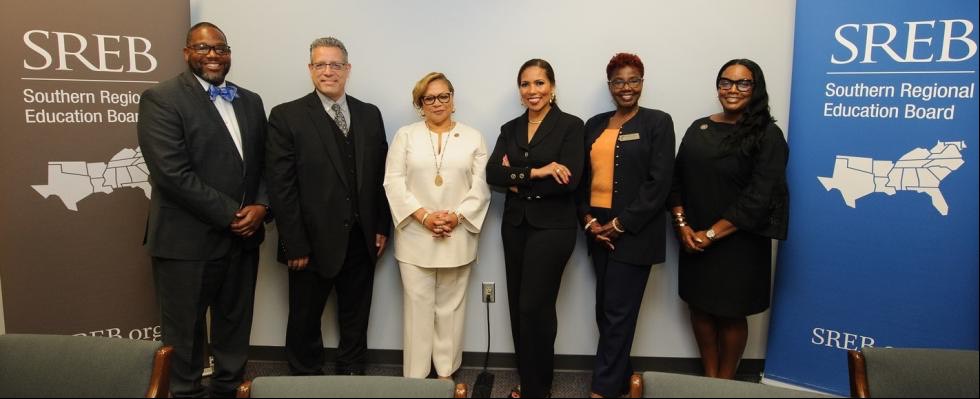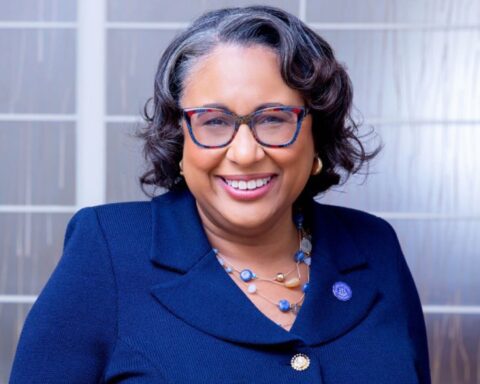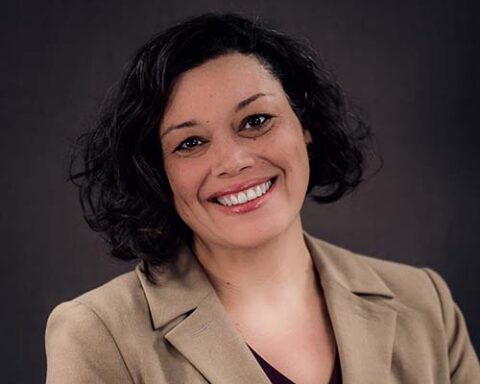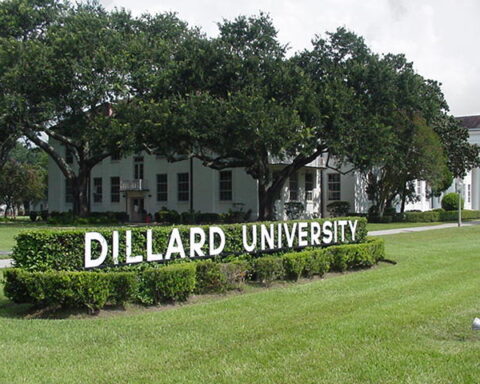By Danielle Miller
Dillard University has joined the Southern Regional Education Board (SREB) HBCU-MSI Course-Sharing Consortium, which is a partnership between SREB and Acadeum to provide a variety of online courses for HBCU students who are in need of flexible learning options. The University joined the academic innovation in an effort to ensure that students are retained, supported through their academic experience and are on track to graduate on time.
Over the summer, Robert Mitchell Jr., University registrar/director of the Office of Records and Registration, and Mark Raymond, director of the Office of Academic Technology and Distance Learning, attended the SREB HBCU-MSI Course-Sharing Consortium Signing Ceremony and Discussion in Atlanta. The two were joined by several academic leaders from across the region, who all expressed the benefits of the course-sharing consortium for their students.
Like several institutions in New Orleans in 2005, Hurricane Katrina brought on unforeseen challenges for Dillard and its students. Mitchell recalls the University having to merge two semesters in one in order to get students to remain on track to graduate. In 2006, Dillard, along with Xavier University of Louisiana, Tulane University and Loyola University New Orleans formed a course-sharing consortium to provide online courses for students who were displaced as a result of the hurricane.
While the course-sharing consortium with local universities still stands, Dillard joined the SREB HBCU-MSI Course-Sharing Consortium to cater to those students who have a strong desire to complete their courses at an HBCU. “The plan for this partnership is to build a community for students within the HBCU realm. Our students choose to come to an HBCU for a family-like setting where they don’t just feel like a number,” Mitchell said. “Now that we have joined the course-sharing consortiums, if there’s another hurricane that shuts the city down, our students can still learn and graduate on time.”
The SREB course-sharing consortium was modeled after a partnership with Dillard University and Benedict College, which was funded in part by a grant from UNCF. The two institutions partnered for an accelerated winter 2021 term to help seniors who needed up to six credit hours to graduate in the spring. In 2021, Dillard was the highest enrolling institution in STEM courses, making up approximately 7.4 percent of students enrolled in the course-sharing consortium. Of the 7.4 percent of students enrolled in the program, 60.3 percent of Dillard students were enrolled in math courses. The partnership has helped more than 90 percent of participants get back on track to graduate. Since then, several institutions have joined and formed a larger consortium. The initial participating institutions include:
Dillard University, New Orleans, Louisiana
Benedict College, Columbia, South Carolina
Albany State University, Albany, Georgia
Clinton College, Rock Hill, South Carolina
Fort Valley State University, Fort Valley, Georgia
Langston University, Langston, Oklahoma
Miles College, Fairfield, Alabama
Morehouse College, Atlanta, Georgia
Southeast Arkansas College, Pine Bluff, Arkansas
Texas Southern University, Houston, Texas
Sheletha Morton-Cooks ‘22, administrative assistant for the Division of Enrollment Management, is a testament to the benefits of the course-sharing consortium. In 2020, Cooks enrolled in the University’s Evening and Weekend Studies Program. Cooks needed to take a course that wasn’t available at Dillard during the summer, so she utilized the University’s course-sharing consortium to complete the required course online, which helped her stay on track to earn a Bachelor of Arts in criminal justice in May of 2022.
HBCUs make up about 10 percent of post secondary institutions in the country. However, they graduate approximately 20 percent of African Americans with bachelor’s degrees in this country. The goal of the SREB HBCU-MSI Course-Sharing Consortium is to increase the success of students graduating from HBCUs.





